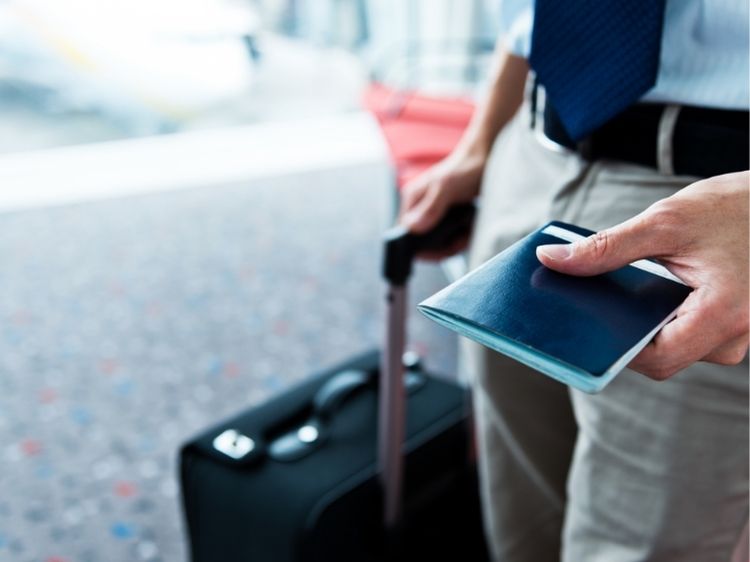Are you gearing up for your next adventure? Whether it’s a cross-country road trip or a backpacking journey across Europe, one thing you shouldn’t overlook is travel insurance. Let’s be honest: no one wants to think about things going wrong during their dream vacation. But life happens, and travel insurance could save you a lot of headaches—and money—if it does. In this article, we’ll walk you through the ins and outs of travel insurance, so you can make informed decisions and focus on enjoying your trip, worry-free.
What is Travel Insurance?
In simple terms, travel insurance is a type of coverage designed to protect you from financial losses and unexpected events that might occur during your travels. Think of it as a safety net for those “just-in-case” moments. Lost luggage? Medical emergencies? Trip cancellations? Travel insurance can help cover the costs and provide peace of mind.
Why Do You Need Travel Insurance?
Traveling is unpredictable. Even the best-planned trips can go sideways. Here’s why travel insurance is essential:
- Medical Emergencies – Healthcare abroad can be incredibly expensive, especially if you require emergency surgery or hospitalization. Without travel insurance, you could be left paying thousands of dollars out-of-pocket.
- Trip Cancellations – Plans change. Whether it’s due to illness, a family emergency, or an unexpected event like a natural disaster, travel insurance can reimburse you for non-refundable bookings.
- Lost or Delayed Baggage – Ever experienced the frustration of waiting for your bags only to realize they’re not coming? Insurance can cover the costs of replacing essential items while you wait for your luggage—or compensate you if it’s lost for good.
- Travel Delays – Sometimes, flights get delayed for hours or even days. Travel insurance can cover additional accommodation, meals, and other necessary expenses during the delay.
Types of Travel Insurance Coverage
Not all travel insurance policies are created equal. Here’s a breakdown of the most common types of coverage:
1. Trip Cancellation/Interruption Insurance
This type of insurance protects you if your trip gets canceled or cut short due to unexpected reasons like illness, a family emergency, or severe weather. It typically covers non-refundable expenses like flight tickets and hotel reservations.
2. Medical and Evacuation Insurance
If you fall ill or get injured during your trip, this insurance will cover your medical expenses. In case of severe illness or injury, it can also cover the cost of getting you back home (medical evacuation).
3. Baggage and Personal Belongings Insurance
This type of insurance covers lost, stolen, or damaged luggage. Some policies also cover items that are delayed in reaching you.
4. Accidental Death and Dismemberment Insurance
Although it’s not something anyone likes to think about, this coverage provides benefits to your family in the unfortunate event of your death or if you suffer a life-altering injury while traveling.
How to Choose the Right Travel Insurance Policy
Choosing the best travel insurance policy for your trip depends on several factors. Here’s what you should consider:
- Destination: Some destinations may have higher healthcare costs, or you may be traveling to remote areas with limited medical facilities.
- Activities: Are you planning on doing something risky, like scuba diving or skydiving? Make sure your policy covers adventure sports.
- Duration of Travel: Short trips may need different coverage compared to long-term travel.
- Pre-Existing Medical Conditions: If you have a pre-existing condition, check if it’s covered under the policy.
Travel Insurance: Frequently Asked Questions
- Is travel insurance worth the cost?
Absolutely. Although it may seem like an unnecessary expense, the potential costs you could face without it far outweigh the policy price. - Does travel insurance cover COVID-19?
Most travel insurance companies now offer coverage for COVID-19-related incidents, including trip cancellations and medical emergencies. However, it’s important to read the fine print to ensure the policy meets your needs. - Can I buy travel insurance after booking my trip?
Yes, but it’s best to purchase it as soon as you book your trip. Many policies offer coverage for unexpected events that happen after booking but before your departure. - What’s not covered by travel insurance?
Common exclusions include high-risk activities (unless specified), alcohol or drug-related incidents, and certain pre-existing conditions. Always read the policy carefully. - Can I extend my travel insurance if my trip gets prolonged?
Yes, many providers allow you to extend your coverage. Make sure to inquire about this option before your trip.
Pro Tips for Getting the Most Out of Your Travel Insurance
- Understand the Terms: Don’t just skim through the policy. Read it thoroughly to understand what’s covered—and what’s not.
- Compare Providers: Don’t settle for the first policy you come across. Shop around, read reviews, and compare different options to find the best fit.
- Keep Documentation: If you need to file a claim, you’ll need proper documentation such as receipts, medical records, or police reports.
- Check with Your Credit Card Provider: Some credit card companies offer travel insurance as a perk. Check if your card provides coverage before buying a separate policy.
Conclusion
At the end of the day, travel insurance is a small investment that can protect you from huge financial risks. Whether you’re exploring the world or heading on a quick getaway, having a solid travel insurance policy can give you peace of mind. From medical emergencies to lost luggage, the right coverage ensures that you can handle the unexpected like a pro. So, the next time you’re planning a trip, don’t forget to pack your insurance policy!

